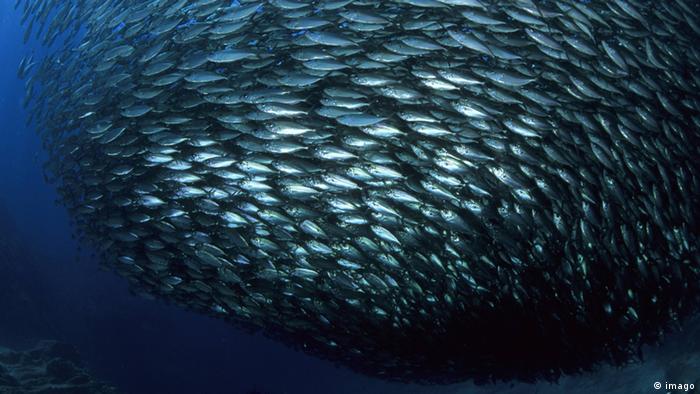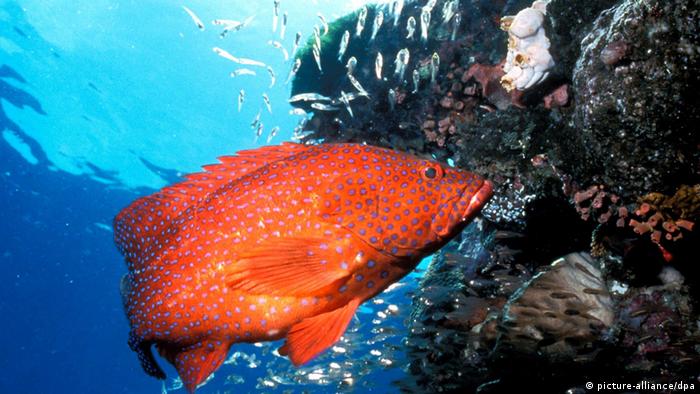Here's one more example of contemplating the costs of protecting or not protecting our natural resources; in this case, the oceans. If WWF is right a gross marine product of 2.5 trillion per year is incredible valuable. Oceans are the playing field for many competing industries, shipping, fishing, tourism, and is attracting big, new players like wind energy companies.
So, how do we use the assets of our oceans without destroying them? Can we be more careful (we just had an oil spill yesterday in CA) on what industries we allow to exploit the resources? How much should we invest in restoring their health (such as, cleaning up the mountains of plastic waste) and protecting them?
Science is allowing us to understand our world so much better. We can't claim ignorance any longer. We know the price we pay for misusing or abusing our natural resources. Now that we can measure their economic value, and understand their importance to certain industries and jobs, it should be easy for us to justify substantial investments i preserving their value to us for many centuries and generations.
Putting a price on the world's oceans
A new WWF report says puts the annual gross marine product at $2.5 trillion, which makes it more valuable than all but six of the world's economies. But for all that, it is continually exploited.
Not only fish are at risk from the challenges we constantly throw at our oceans
When it comes to our oceans, there is no fair exchange. They provide us with treasures and we fill them with rubbish. They stabilize the climate and we challenge them to work harder.
Conservationists and marine biologists have long lamented this inequality, appealing to countries, companies and communities alike to understand the importance of the salty waters that cover more than two-thirds of the earth's surface.
The message may have got through to some, but the alarming reality is that our oceans are in dire danger of being over-fished, over-polluted, over-heated, and over-acidified. The consequences, the WWF says in its new report, pose a threat to "the future of humanity."
The document, entitled Reviving the Ocean Economy: The case for action – 2015, WWF "conservatively" estimates the value of key ocean assets to be $24 trillion (22 trillion euros), and puts the annual gross marine product at $2.5 trillion. That figure, which does not take into account non-direct outputs such as offshore oil and gas or wind energy, would make the ocean the world's 7th largest economy.
The long route to restored health
More than two-thirds of the gross marine product is dependent on healthy ocean assets, but as the seas are degraded, they become less able to feed and provide livelihoods for the hundreds of millions of people who depend on them.
Against that backdrop, the report lays out an eight-point restoration plan, calling on the international community to ensure that ocean recovery "features strongly in the UN Post-2015 Agenda" and address the problems of ocean warming and acidification. It also stresses the need for countries to deliver on the agreed target for protected marine and coastal areas, and to revise policies to prevent further over-fishing.
It further suggests the establishment of a coalition to monitor sustainable ocean management, and private-public partnerships that factor in "the well-being of communities, ecosystems and businesses."
If adhered to, the report says the plan of action could provide a sustainable future for those who rely directly on the ocean for their food and jobs, "and for all humanity, which depends on the ocean as an essential contributor to the health of our planet."
Conservationists and marine biologists have long lamented this inequality, appealing to countries, companies and communities alike to understand the importance of the salty waters that cover more than two-thirds of the earth's surface.
The message may have got through to some, but the alarming reality is that our oceans are in dire danger of being over-fished, over-polluted, over-heated, and over-acidified. The consequences, the WWF says in its new report, pose a threat to "the future of humanity."
The document, entitled Reviving the Ocean Economy: The case for action – 2015, WWF "conservatively" estimates the value of key ocean assets to be $24 trillion (22 trillion euros), and puts the annual gross marine product at $2.5 trillion. That figure, which does not take into account non-direct outputs such as offshore oil and gas or wind energy, would make the ocean the world's 7th largest economy.
The long route to restored health
More than two-thirds of the gross marine product is dependent on healthy ocean assets, but as the seas are degraded, they become less able to feed and provide livelihoods for the hundreds of millions of people who depend on them.
Coral reefs could disappear completely within the next 35 years if we don't change our habits
By way of example, WWF says 90 percent of global fish stocks are either over or fully exploited. The picture is equally bleak for other marine or marine-related life. According to the paper, current rates of temperature increase will lead coral reefs to "disappear by 2050."Against that backdrop, the report lays out an eight-point restoration plan, calling on the international community to ensure that ocean recovery "features strongly in the UN Post-2015 Agenda" and address the problems of ocean warming and acidification. It also stresses the need for countries to deliver on the agreed target for protected marine and coastal areas, and to revise policies to prevent further over-fishing.
It further suggests the establishment of a coalition to monitor sustainable ocean management, and private-public partnerships that factor in "the well-being of communities, ecosystems and businesses."
If adhered to, the report says the plan of action could provide a sustainable future for those who rely directly on the ocean for their food and jobs, "and for all humanity, which depends on the ocean as an essential contributor to the health of our planet."



No comments:
Post a Comment